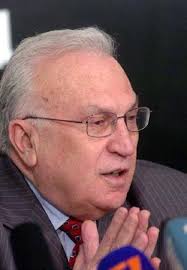 By Edmond Y. Azadian
By Edmond Y. Azadian
Turkey and Azerbaijan have cornered Armenia in its international relations. They have blockaded the country and have been trying to stifle it by isolating it in regional development projects, including pipelines. Georgia, which nominally is an ally and a fellow Christian country, is in full cooperation with these two enemy countries; railway systems, oil and gas pipelines are being developed in the region, bypassing Armenia.
The West has its own perspectives on these subjects; take for example, in the US. For many years, both during the Bush and Obama administrations, Article 907 of the Freedom Support Act, punishing Azerbaijan for its hostile actions against Armenia, has been suspended by the president’s office, not because Azerbaijan has been behaving any better, but because it is viewed within the context of Russian containment. Thus, Armenia’s isolation becomes part of the collateral damage even when it is not intended, because it is a strategic ally of Russia and a friend of Iran.
Conversely, Iran and Russia do not view Armenia as a victim of the West’s policies against them. Although they keep their friendly relations, they do not and possibly cannot compensate Armenia for the punitive measures it suffers as fallout from the two countries’ complicated ties with the West.
In short, Armenia is being marginalized in its international relations, which has a direct bearing on its economy and the well being of the ordinary citizens there.
Yerevan, certainly, cannot cope single-handedly with this large geo-strategic game.







